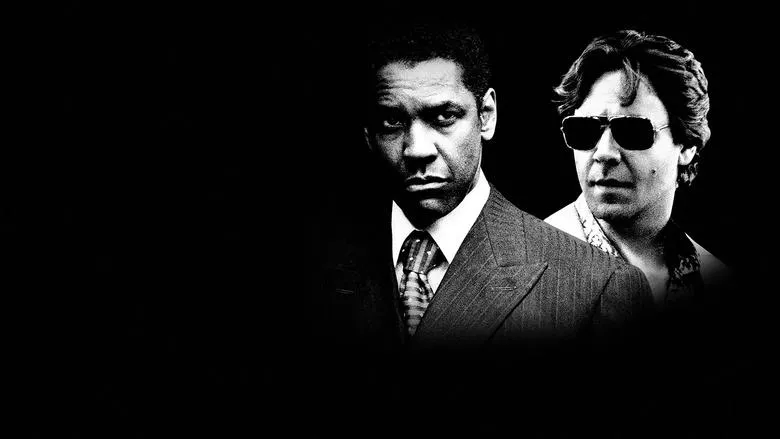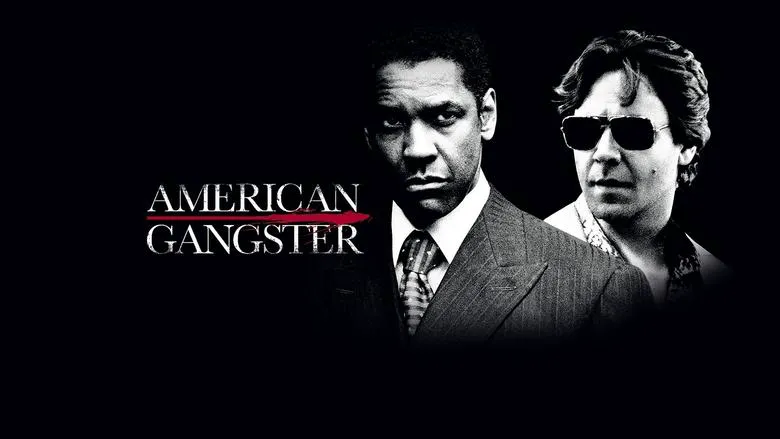American Gangster: A Classic in the Making?
“I wanted to be rich. Rich like Donald Trump. And, so help me God, I became,” Frank Lucas, one of America’s most talented gangsters and ruthless businessmen, once explained his life. Still alive, old but not frail, he recently met with his sworn rival from the street wars at the request of New York Magazine, which was eager to hear the two old men talk about the good old days. Frank Lucas liked “American Gangster” (2007), a film dedicated to his life.

Unsurprisingly, most viewers also enjoyed the film, with box office receipts exceeding $160 million. Ridley Scott took on this project, which had almost drowned in director changes and financial difficulties, with clear Oscar-winning intentions. If “American Gangster” doesn’t receive nominations, it will not only be surprising but also unfair. Scott’s resurrection of Harlem in the 60s and 70s alone is worth the price of admission, not to mention Denzel Washington and Russell Crowe, as well as Lucas’s story itself – a black Cinderella with a gun who came up with the idea of importing heroin into the United States in the coffins of soldiers killed in Vietnam.
From Protégé to Innovator
He didn’t come up with the idea right away. After working for fifteen years for Harlem’s godfather, Bumpy Johnson (who was also the subject of “The Cotton Club” (1984)), Lucas listened carefully to his boss’s advice, closely observing how he handed out turkeys to the poor on Thanksgiving and burned his enemies alive. When Bumpy died, it was 1968. After burying his mentor, Lucas decided it was time for big business. He firmly believed in marketing – “Brooks Brothers” suits, direct contact with the manufacturer, the best quality, a low price, and a creative approach. He went to Thailand, where American troops were relaxing after fighting the Viet Cong, and personally contacted the owners of poppy plantations. He arranged for delivery in the coffins of dead soldiers. He began selling the purest heroin in the history of street trade, creating the brand “Blue Magic” – a corresponding inscription adorned each packet. He became a black gangster who was respected by the Italians. He bought his mother a house. He collected one million dollars a day from the streets, went to prison, turned in half of New York’s corrupt cops, and was released early. He is a business genius, no worse than Chichvarkin.
The Pursuit of Justice
The pursuer who put the genius behind bars is Richie Roberts, a cop with an unsettled personal life, a Star of David defiantly sticking out from under his unbuttoned shirt, and a serious sense of justice. A thief should be in prison. Period. For the sake of this principle, Roberts spares neither friends nor enemies, towards whom, however, he feels no personal animosity. In the end, the two intelligent men, believing in what they are doing, will calmly compare approaches across the table in the interrogation room.
A Potential Classic
While watching this film, one can’t shake the feeling that it is destined to become a classic. The incredibly well-thought-out picturesqueness of Harlem in the 60s, Washington’s rock-steady portrayal of Lucas, and Crowe’s terrier-like ferocity as Roberts, the back streets, boxing rings, poppy plantations, and Thai strip bars – Scott managed to create a dish made of spices alone. The shot in which the flash of a gunshot snatches Denzel Washington’s face from the shadows will go down in textbooks. Ridley Scott twisted racial, political, and social problems into one bundle, painted a portrait of an era, and made his compatriots wrinkle their foreheads over the story of a bandit who believed in American values and the American dream.

However, he seems to have filmed all this heroin chic for the sake of one phrase from old Bumpy Johnson, spoken before his death: “The system has no heart to stick a knife into.” Scott has been concerned about this fact for more than a decade, so until the very end, you wait for Frank Lucas to reveal some secret – what drove him? Why did he do it? And when it turns out that there is no secret, you feel cheated – not by Lucas and not by Scott, but by the general banality of life. There’s nothing even to think about here – the real Lucas stated that 75% of the film is pure truth.
After this, you want to recall the film’s pointless lines with the heroes’ wives, the majestic monotony of Washington’s acting, and think with feigned sympathy that “American Gangster” may receive an Oscar, but it will not become a classic.